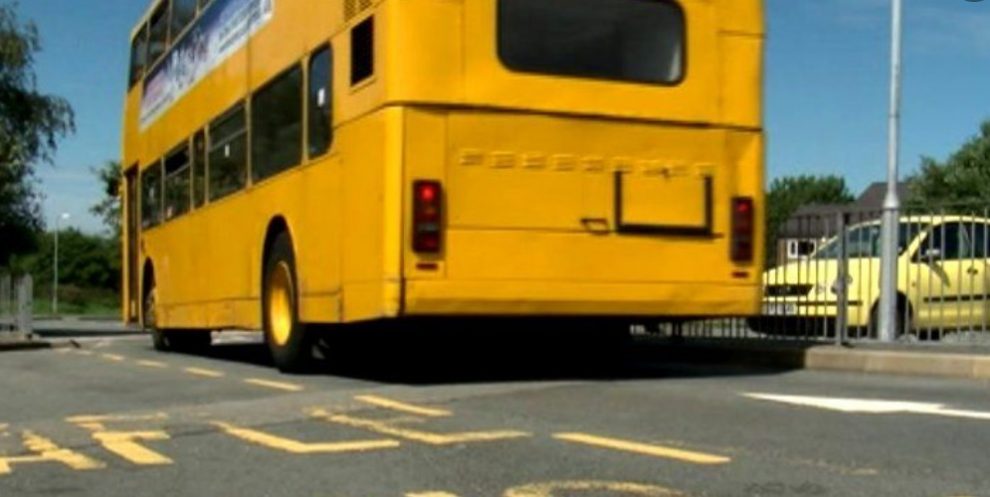PARENTS in Rhondda Cynon Taf have raised their fears about the impact that losing free school transport could have.
The council is considering a change to its free school transport policy which would increase the eligibility distance for primary pupils to two miles or further from their nearest suitable school, with the current distance being 1.5 miles and the distance for mainstream secondary and college pupils increasing to three miles with the current distance being two miles.
The council said this could save £2.5m a year and allowing a learner to select their nearest suitable school in accordance with their choice of English or Welsh Medium language, or preferred religious denomination, would continue – as would providing pre-compulsory school age and post-16 transport, which the council said was beyond the minimum statutory requirement.
The policy for Additional Learning Needs transport would remain unchanged under the proposal but, overall, it could see 2,700 pupils lose access to the discretionary service.
Dale Hayes, who lives in Pontyclun and whose child attends Ysgol Llanhari has spoken of her concerns over the potential effects on Welsh medium education, how working parents would be able to get their children to school and the walking routes.
Dale said that when her daughter was younger the council promised them Welsh medium education. She said there were less Welsh medium schools than English ones and they were also promised free school transport to Ysgol Llanhari.
She raised concerns that mileage was being calculated as the crow flies but the council said it used an application which calculated the shortest “safe route” between each address and school
Dale said: “This has lit a fire in me. I think it is unfair. Even if you did work how would you be able to drop your children to school outside the normal catchment area.”
Dale went on to say that she didn’t feel that the council had given parents enough time to object. She mentioned the work that had been done on Ysgol Llanhari in a bid to increase pupil numbers and said: “If you take away free school transport numbers are going to fall dramatically.”
“We’ve had all this money ploughed in to saving the Welsh language and Welsh culture and now we’re almost going back in time.”
Dale said the only other alternative for her child was Garth Olwg but she said “that is further away again.”
“The council have not informed us as parents. I’m sure that there are a lot of parents who don’t know anything about it. They’re not giving parents the chance to object.”
Dale has a disability and doesn’t drive and claimed it wasn’t possible to walk from where she lived to Ysgol Llanhari because it was a long stretch of road and there were parts of it with no paths and no lights.
She asked what would happen to her job as a result and said that not all families would be able to drop their kids off and pick them up.
Dale said that other areas were within walking distance of their school and could start or finish earlier, but they couldn’t do that in their area because the catchment areas were so vast.
She also said she wouldn’t be able to afford the extra bus fare to get to and from the school, adding that there were only two buses an hour to Llanhari for them and that there might be none for other schools.
Dale said: “I am a single mum. I’m struggling as it is” adding, “would they penalise me if I can’t get my child to school?”
She also claimed that the council was not supporting the right of the child to education, especially a faith or Welsh medium one.
Speaking about families, Dale asked, during a cost-of-living crisis, “why penalise them even further by putting financial pressure on them.” She said that “parents will be faced with a really difficult decision” such as can they afford to continue to send their children to their current school.
“I don’t think the council have really thought about this.” She added that she knew that the council had funding issues and that it had to make tough decisions, but said there were “some families that are really going to suffer through it.”
Another parent raises concerns over the impact on Welsh medium education and safety in getting to and from school
In Tonypandy, Helen Bowen who lives 2.8 miles from her children’s school, Ysgol Gynradd Gymraeg Bodringallt in Ystrad, would also just lose out on free school transport if the proposal came in. She said her concerns were over access and Welsh medium education.
She also said that at some point one child would be at that school and the other would be at the secondary school in Cymmer which were in opposite directions, making it it difficult to get them both to the Welsh schools.
She said there were fewer Welsh medium schools so the choice came with more responsibility as people had to go out of their way to access it and so it came with more costs, meaning that transport was essential.
She said if the proposals happened the Welsh language would be affected which was the opposite of what the Welsh Government wanted, adding it’s “very contradictory” especially in a poorer area with fewer Welsh speakers.
Helen said they used to have the option of paying for transport and said “I would be more than happy to pay.”
Helen went on to say that her child could have to walk 55 minutes to and from school “on roads that are not really safe in all conditions” or use more than one form of transport to get to school which she said “makes no sense.”
She said: “It does not lend itself to the safety of children, to the education of children. It will directly impact on parents getting to work themselves.”
Helen added: “It’s important to have the voice of children involved in this” adding concerns about how pupils would transition to a new school if they had to try to get there on their own.
Another issue she raised was that of congestion in the area which she said went against Welsh Government policy on the environment as well as creating safety risks.
Helen said she completely appreciated RCT’s budget position but said they “can’t save money to create massive risks.”
Referring to the council’s comments that the transport policy was “generous”, she said you couldn’t compare different councils’ transport policies as it was like “comparing apples and oranges.”
She said: “In their eyes it’s generous, in our eyes it’s necessary.”
Helen said that attendance had lowered in RCT since Covid and that this proposal would worsen things again. She also asked who decided if a walking route to school was safe as that was “subjective.”
An explanation from the council
In response, the council said a consultation started on November 27 and ran for 6 weeks until January 8 and that social media promotion as well as direct promotion via schools had taken place.
It said it was aware of its responsibilities in relation to Welsh language/faith learners under the Learner Travel (Wales) Measure 2008 and specifically Welsh language learners under other relevant legislation.
It said it had produced Welsh language and equality impact assessments which were available as part of the consultation process which would be refreshed prior to any decisions being made in relation to the proposal utilising feedback obtained as part of the consultation process.
But the council said that legislation would soon require any coach/bus used on a scheduled service to provide wheelchair access and this would apply to transport for learners provided by councils on a discretionary basis where the councils made a charge or sold surplus seats.
The council said that at this time all buses must be what the UK Government described as either fully or partially compliant with the legislation by August 1, 2025, immediately before any amended home to school transport policy would be implemented.
The council said there was currently a significant lack of buses that met the legislative requirements within the marketplace and due to the additional time required to operate scheduled school bus routes, and the geographical restrictions along these routes, a bus with wheelchair lift would not be able to operate on many of the current schools bus routes due to issues such as steep inclines and it was also not practical to operate such vehicles on school contract routes.
The council said this meant the option of charging for transport under the statutory distance had not been proposed as a workable option.
The council’s stance
A Rhondda Cynon Taf Council spokesman said: “This proposed service change would place the council’s transport policy in line with Welsh Government’s statutory distance eligibility criteria and statutory walking distance policy from September, 2025, which 18 of the 22 Councils in Wales currently provide.
“Any pupils living more than the statutory distance, or closer with no safe route, will continue to receive free transport, whether that is English medium, Welsh medium or faith school. Despite the proposed revisions, the council would continue to provide beyond our statutory requirements.
“For almost 10 years, the council has provided over 9,000 learners with access to free school transport on a discretionary basis. This means that the council currently provides discretionary transport for more learners than almost every other Welsh council’s home to school transport operations.
“However, this also means that the council’s home to school transport costs have increased from £8 million in 2015 to over £15 million for the 2023/24 financial year.
“The proposal would deliver savings amounting to £2.5 million in a full year, meaning the council would continue to provide some discretionary provisions amounting to £4.4 million per year.



















